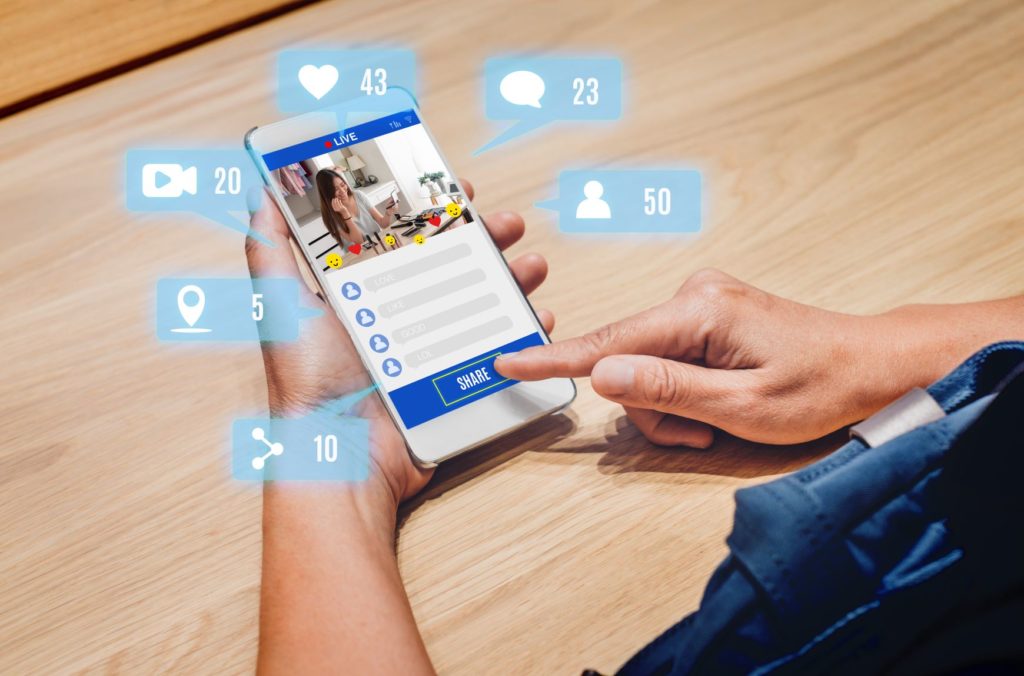
Influencer marketing and healthcare don’t always go hand in hand in the mind of a marketing professional. When people think of influencer marketing, they automatically think of big-name celebrities cross-posting promotional material on their social media pages for various brands. In fact, there has been some backlash in the past regarding influencer marketing in healthcare because social media influencers “aren’t doctors” and shouldn’t be advising on medical concerns.
So, if traditional influencer marketing is so controversial, how does the marketing trend work in the healthcare industry?
Influencer Marketing in Healthcare: Current Trends
When it comes to healthcare marketing tools, many of the “traditional” marketing tools work well for those in charge of building a healthcare marketing strategy for manufacturers, providers, etc. The same can be said of influencer marketing when done right. Studies have shown that approximately 80% of advertisers find this marketing method effective.
Source: Smart Insights / Mediakix
The easiest way to break the idea of influencer marketing down is to pay careful attention to the audience that you’ll be addressing. However, when it comes to healthcare, things can get dicey. So, if you’re looking to leverage influencer marketing in the healthcare industry, you need to keep in mind that you are catering to a very specific audience made up of either doctors or patients (or sometimes a combination of both).
So, while a creative celebrity cameo can work in some instances, you’re better off implementing one of these three current healthcare marketing strategies:
1. Healthcare Influencers
The concept of healthcare influencers works very similarly to that of more traditional influencers. The primary difference is that these individuals are experts in the industry. They can be doctors, surgeons, scientists, manufacturers, and more.
2. Health e-Mavens
The concept of e-Mavens isn’t exactly a new marketing concept; however, it’s not often talked about either. This concept stems from a term first coined in 1987 known as marketing mavens. Marketing mavens were known as a type of influencer who not only had a social presence but, again, a certain level of expertise or insider knowledge in a particular industry.
In our current age of technology, these individuals are known as e-mavens, and they are considered consumers with first-hand knowledge of a subject and share their expertise online. What makes these individuals different from healthcare influencers is that while they have first-hand knowledge, they aren’t exactly “experts” in the traditional sense.
Health e-mavens are defined as those who are “actively involved with health information acquisition and information transmission” across the internet. These are people that the public has come to know and trust for one reason or another. They are constantly searching for new information and they have a deep desire to share it once they’ve found it.
One recent example is Lucy Hale, who has taken it upon herself to open up and share her women’s health journey and finding the right kind of birth control that suits her specific needs.
Source: Instagram
Helping women everywhere find the information they need to stay healthy is a passion for the young actress, so it’s unsurprising that she would open up about her story and share something so vulnerable with the public.
3. Online Medical Journals
Did you know that approximately 7% of Google’s daily searches are in some way, health-related? That amounts to nearly 70,000 health-related Google searches each minute. Technology is an excellent resource, and with so many patients taking more control over their health and wellbeing, they are turning to the internet for information both before and after consulting with their medical team.
This is where journals in healthcare marketing come into play. Online medical journals come in many different forms, including:
- Professional medical journals, such as the National Center for Biotechnology Information (NCBI) and the New England Journal of Medicine (NEJM)
- Digital healthcare journals for the public, including The Journal of Healthcare Contracting, Frontiers, and more.
How Journals in Healthcare Marketing Work as a Form of Influencer Marketing
So, which of these methods is the most effective for a successful healthcare marketing strategy? The right answer is to say all three have their advantages; however, online journals have a bit more edge to them than health e-mavens and other healthcare influencers.
The saying content is king still rings loud in the marketing industry, no matter what sector you are in. This is especially true when it comes to content marketing in healthcare. Think about it for a moment – blogs and other similar online content are among the top three types of media used in content marketing today.
Source: HubSpot
Online journals in healthcare can and often do fall under this category. They work because they can be easily optimized for search engines, they can help draw in consistent (and relevant) traffic to your website, and when thoroughly researched, can help you build your authority on a given subject matter.
This type of content is crucial now more than ever as more and more individuals start turning to Dr. Google for answers to their medical questions.
Get More Healthcare Marketing Tips and Tricks with Share Moving Media
As a full-service media company, the team here at Share Moving Media understands that staying up to date on the current healthcare marketing tools and trends can be a tricky process. That’s why we do the heavy lifting for our clients. Contact us today to learn how we can help your brand.
Subscribe to our weekly newsletter, The Marketing Minute, today!


